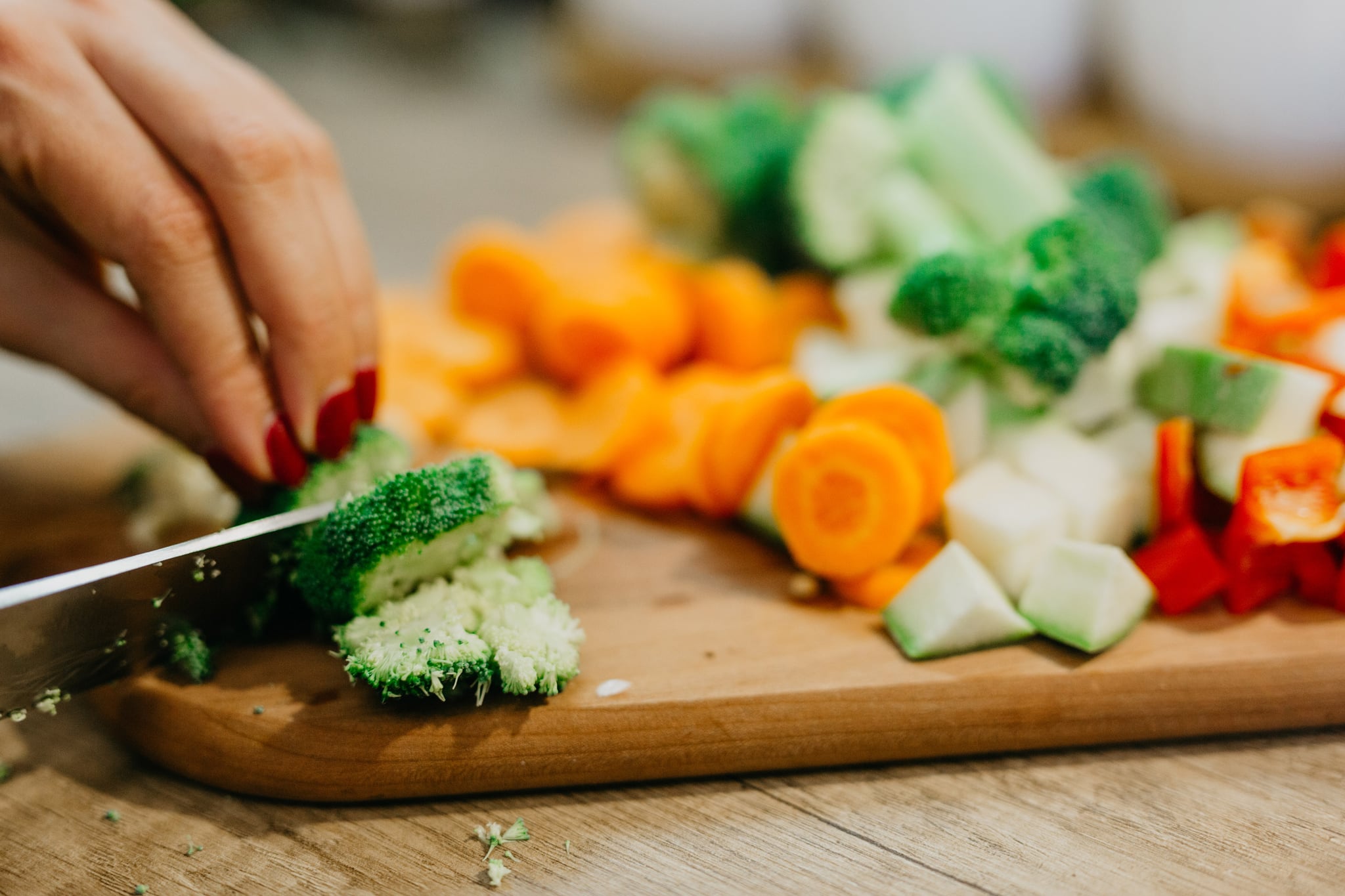
Veggies are the one of the best foods you can eat for weight loss because they’re low in calorie density, which means they have fewer calories per pound compared to other foods. POPSUGAR spoke to registered dietitians Kate Coufal, MS, RDN and Lonielle Freeman, RDN, to ask whether it makes a difference if your veggies are raw or cooked when you’re trying to lose weight.
Are Raw or Cooked Veggies Better For Weight Loss?
Raw veggies have fewer calories than cooked veggies, due to their higher water content, Coufal explained. Cooking evaporates the water, making cooked veggies more calorically dense, meaning they have more calories per pound. However, the differences are not that significant. “At the end of the day, consume vegetables in whatever form you prefer,” Coufal said.
And while raw vegetables do contain more B and C vitamins compared to cooked, and some of these water soluble nutrients may be lost during the cooking process, it’s not enough to make the food valueless. Overall, the differences in cooked vs. raw vegetables doesn’t hold much value in terms of weight loss. The most important thing is to eat your veggies! So focus on eating the veggies you like, prepared in a way that you’ll actually eat them.
Which Veggies Are Best For Weight Loss?
Non-starchy vegetables such as broccoli, leafy greens, peppers, carrots, and cauliflower are less calorically dense than starchy vegetables like corn and potatoes, explained Coufal. For weight loss purposes, you’re able to consume a higher volume of non-starchy vegetables while maintaining a lower-caloric intake compared to starchy vegetables. Some non-starchy vegetables such as broccoli, cauliflower, asparagus, and Brussel sprouts also contain a large amount of fiber, too. Coufal said the high-fiber content specifically helps with satiety, maintaining blood sugar levels, and prevents overeating.
One thing you want to be mindful about is how your veggies are prepared. Whether raw or cooked, if weight loss is your goal, you don’t want to douse your veggies in high-calorie ingredients like butter, cream, cheese, or oil. To maximize weight loss, use vinegar or lemon juice on your salad, add herbs or seasonings to flavor steamed veggies, and roast veggies on parchment paper or a silicone so you can skip or reduce the oil.
Dangers of Eating Only Non-Starchy Veggies For Weight Loss
You might think, “I’ll just salads all the time to lose weight faster.” While eating only non-starchy vegetables can lead to rapid weight loss, Coufal warned that this is extremely dangerous. She said, “Restricting your calorie intake too much may result in low energy and a lack of adequate nutrients.” It can also cause feelings of extreme deprivation which can ultimately lead to overeating or binge eating later on, which will only cause weight gain. Balance is key to reaching a calorie deficit while also feeling satiated.
How Many Veggies Should I Eat?
The American Heart Association suggests five servings of veggies a day, Freeman said. If you have a hard time getting in that many, one way to ensure you eat your veggies is to eat the 50/50 plate, where half your plate is lower-calorie, non-starchy veggies like salad, carrots, tomatoes, cauliflower, or zucchini. Or add veggies to the recipes you already make like tossing broccoli into your pasta sauce or adding carrots to your oatmeal. This helps lower the calorie density of your meal, which aids in losing weight and maintaining weight loss long term.
Remember not all veggies contain the same amount of vitamins and minerals, Freeman said, so eating a rainbow is vital — go for a variety of color! Whether you enjoy them cooked or raw, veggies are an important element to our daily dietary intake.
